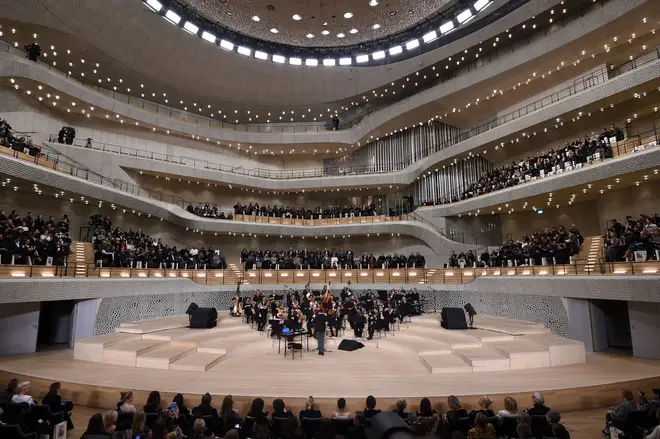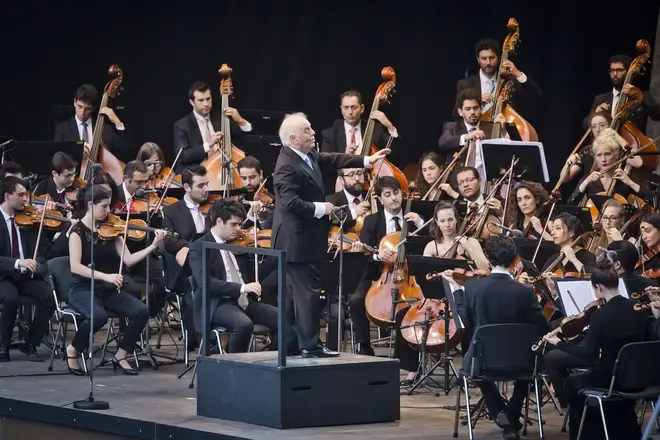On Air Now
Classic FM Breakfast with Tim Lihoreau 7am - 9am
19 August 2020, 16:34

A German medical team backs audiences returning at full capacity, claiming classical and opera crowds are “disciplined, don’t talk and usually stick to rules”.
Scientists from a leading German medical institution have said full audiences should be allowed at opera and classical concerts, claiming that classical concertgoers would be more “disciplined” in taking precautionary measures against coronavirus.
The German epidemiologists, from two institutes at Berlin’s Charité hospital, released a study recommending audience members wear a PPE-grade mask at all times, and that venues should not serve any food or drink that would require masks to be removed.
They encourage social distancing, regular hand sanitisation and one-way systems, adding that priority should be given to venues with ventilation systems that can exchange the air several times an hour.
Crucially, the scientists say full audiences should be allowed because of the nature of a German classical concert crowd.
“The classical audience is very special, usually well-educated, disciplined, don’t talk, usually stick to rules and don’t sit opposite each other,” Professor Stefan Willich, director of the Institute for Social Medicine and Epidemiology at the Charité, tells the Irish Times.
Read more: Scientists to conduct live concert experiment with 4,000 music fans >

Willich said recent studies have shown a typical classical orchestra layout is “very protected as far as droplets and aerosol transmission”.
After analysing international studies on this airborne virus transmission, which have so far been a crucial factor in the debate around live performance returning, the scientists concluded orchestras should be allowed to play at an almost normal distance from each other.
This analysis moves away from the Charité’s as a whole’s official guidance, released in May, which advised string players be seated 1.5 metres apart, with 2 metre distancing for wind and brass players. The Charité’s leadership has since distanced itself from the researchers’ comments.
Professor Willich, himself an amateur conductor, suggests the pandemic also offers opportunities for arts venues to change up certain concert practices, including coughing between movements and the now-archaic-seeming concept of booing.
Watch: The moment a crowd BOOED Pavarotti for cracking on a high note >
“Perhaps there could be an addition to the announcement before the performance,” said Prof Willich. “‘No video or audio recordings and please no booing at this time – even if it is justified.’”

Luciano Pavarotti Speaks About His Voice Cracking During Don Carlo in 1992
Germany’s federal culture minister, Monika Grütters, welcomed the paper as an addition to the debate on reopening German arts venues. She said this year’s Salzburg festival – which had a reduced programme and smaller audiences – showed that “pandemic-focused theatre can be staged”.
The authors say their recommendations are based on the coronavirus climate in Germany, where there are currently up to 1,500 new cases a day.
They acknowledge the greater risk posed to classical audiences, who tend to be older, and say it should be up to concertgoers to assess the risk of attending an event.
Germany has been at the head of the game in Europe, in terms of bringing live music back. But they’ve also attracted some controversy.
On 22 August, an indoor live music experiment in Leipzig is due to be attended by 4,000 music fans, during which researchers from Martin Luther University will use various measures to track the spread of coronavirus at concerts.
And in September, 13,000 people will be able to attend a concert featuring Bryan Adams in Düsseldorf’s arena, marking the first major concert in the country. The results of the Leipzig experiment are set to be published in October.